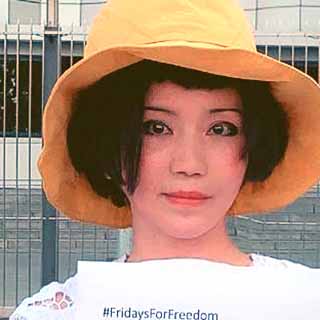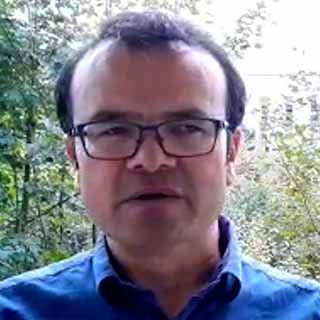
‘They Live in Constant Fear’
Ten years ago, radio journalist Yutong Su slipped past her security detail and fled Beijing, where she had been under house arrest for distributing the banned book Li Peng Diary. Li Peng was China’s leader during the Tiananmen Square crackdown. Su now works for Radio Free Asia, a sister organization to Voice of America under the taxpayer-funded U.S. Agency for Global Media. She lives in Germany, but is still wary of Chinese authorities.
Berlin, Germany I left my job at Beijing Radio [in 2004] because of government interference.
At Beijing Radio, we would randomly receive phone calls or orders from Chinese Communist Party Propaganda Department on issues that we should not report.
About this project
Journalists who've reported on repressive regimes sometimes have no choice but to flee for their safety. But exile is no shield for loved ones back home. The threat of family reprisals puts journalists in a fraught corner. Here, they tell their stories:
Jessica Jerreat,
Press Freedom Editor
Even the slightest slip of the tongue would be censored in live broadcasts at Beijing Radio. Because of [Party] censorship, every live broadcast would be delayed 7 to 16 seconds, and if there were words like “Merry Christmas” during our live broadcast, such occurrences would be censored.
In June 2010, I distributed Li Peng Diary, a book banned in China. Shortly after, I was arrested. About six police raided my home, took two computers and other documents.
I was released because of public pressure and put under house arrest.
With the help of friends, I managed to escape during a Chinese Dragon Boat Festival, when only one police officer was left to watch my apartment. I flew from Beijing to Shenzhen and then to Hong Kong. Finally, in August 2010, I arrived in Germany.
From China to Germany
I worked as a journalist at Deutsche Welle’s Chinese service from 2010 to 2014 and later joined Radio Free Asia’s Chinese service.
Editor’s note: In 2014, Su lost her Chinese passport and applied for a replacement through the Chinese Embassy in Berlin.
I handed in all the documents the embassy required and paid the fee.* The next week, the embassy asked me to come in. When I asked if I could bring a lawyer they refused. They asked me to come alone and without my phone.
I didn’t go for safety reasons. Soon after, police visited my parents in China and told them I should not engage in anti-Party and anti-government activities abroad.
Since 2014, police in China have threatened and harassed my parents. They live in constant fear.
Last September, I interviewed the Chinese delegation at the U.N. in Geneva about a letter they sent to other delegations alleging that the World Uyghur Congress, an NGO based in Munich, was a separatist organization.
The Chinese delegation asked for my phone number, which I gave them. That night a Chinese man rang the buzzer for my apartment and said he lived close by and needed to borrow a printer to print a plane ticket.
No Chinese live near my building, and from his tone I knew he was lying. I felt threatened by that unexpected visit. I suspect it was a direct threat by the Chinese state because of my journalism.
This interview has been edited for length and clarity.
China’s Foreign Ministry did not respond to VOA’s request for comment.
